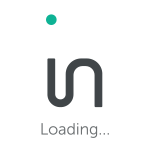By Dave Zinman
The digital advertising industry never lacks for innovation; there is always a new technology or technique promising to be the answer to all of our needs. However, smaller publishers don’t always have the ability to take a risk on new approaches.
Native is the latest thing dominating the conversation in digital advertising. Advertisers are clamoring for the promised double-digit lifts in engagement rates that these ads-as-content deliver, and publishers are scrambling to build custom solutions to make their sponsors happy.
But unlike many of the recent “next big things”, native is not exclusive to the big publishers with the big bucks. It’s true that “closed,” or platform-specific, site-specific native usually requires expensive custom technology builds and can therefore usually only be utilized by major publishers like The Atlantic, The Onion and Funny or Die – not to mention the major social networking sites, all of which have successfully adopted closed native.
“Open” native, on the other hand, can work for just about everyone, including smaller publishers. Open native allows branded content to live outside of the platform, therefore that content can be placed in native ads across multiple platforms. Not only does open native not require custom technology, but also, the features of open native could actually make it more effective than closed platforms.
For instance, open native enables intent targeting via contextual information, and it can provide that targeting in real-time. Targeting based on intent has consistently been shown to be a highly effective engagement tool, which for publishers means higher click through rates, which can mean higher value on your inventory.
Additionally, open native enables publishers to choose relevant, high quality branded content at scale, content which functions on its own rather than as a tacked on ad that disrupts other content. You don’t have to be Forbes to gain the quality of closed platforms like BrandVoice.
There is a variety of ways for publishers of any size to take advantage of open native platforms. InText placements highlight keywords within your content that users may hover on or click to see related ads. Ads can also be placed within search feeds, which are especially ideal for targeting user intent. Some placements do not affect your site’s look and feel at all; rather they simply appear in the margins of a page, outside the frame of the site.
Regardless of the type of ad, open native platforms ensure that branded content, though not created specifically for a site, will visually integrate with a site’s look-and-feel, maintaining the integrity of the site experience and often enhancing it. For example, InText ads adopt the font and colors of the existing text, helping ensure that ads are seen without taking the user out of the experience or disrupting what the user is ultimately on the site to accomplish. InSearch ads, like Infolinks’, can actually help users accomplish their goals by offering unobtrusive overlay ads within search results for products related to the search.
Open native, overall, is a more accessible, more democratic platform that enables publishers of all sizes to create the ad experience that is suited to their unique site and the needs of their users, without the cost and risk of creating custom technology or content. And by ensuring a seamless, organic advertising experience on their sites via open native, publishers can see higher returns on their inventory. With little to no upfront cost and such high potential return, there is no reason that publishers, even the smaller ones, should have to wait any longer to jump on the native bandwagon.
Dave Zinman joined Infolinks in 2012 as CEO. Prior to joining Infolinks, Dave was COO for Inadco. From 2007 through 2010, Dave was VP & GM for Display Advertising at Yahoo! Dave joined Yahoo! through the acquisition of BlueLithium, where he served as SVP & GM. As a founder of AdKnowledge in 1995, Dave pioneered ad serving technology and is credited by Wikipedia as co-inventor of the ad server. The company was sold to CMGI in 1999.
